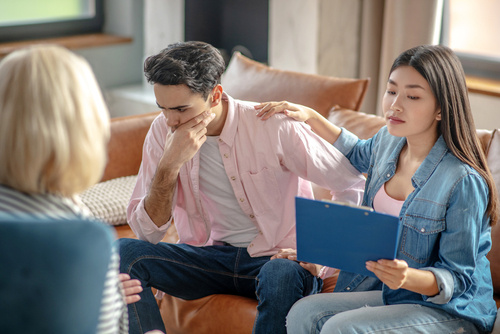What Sleeping Pill Is Comparable To Ambien?
Ambien is a brand-name medication (generically known as zolpidem) that was approved by the U.S. Food and Drug Administration (FDA) in 1992 for use with the treatment of certain sleep problems, such as insomnia. It belongs to a class of medications known as sedative-hypnotics. Ambien is a central nervous system depressant that works by acting on certain neurotransmitters in one’s brain, specifically the GABA-A (gamma-aminobutyric acid-A). GABA reduces the excitability of nerve cells (neurons) in the brain, which plays a role in the transmission of pain signals. When Ambien binds to this receptor it elicits a calming effect as it slows down excessive brain activity and inhibits specific brain activity associated with insomnia. There are a variety of over-the-counter antihistamines and pharmaceutical alternatives to Ambien. The Mayo Clinic provides the following examples of common over the counter sleep aid options as well as potential side effects:
- Diphenhydramine (e.g., Benadryl, Aleve PM, etc.): Diphenhydramine is a sedating antihistamine. Side effects might include daytime drowsiness, dry mouth, blurred vision, constipation, and urinary retention.
- Doxylamine (e.g., Unisom SleepMelts): Doxylamine is also a sedating antihistamine. Side effects are like those of diphenhydramine.
- Melatonin: The hormone melatonin helps control one’s natural sleep-wake cycle. Side effects can include headaches and daytime sleepiness.
- Valerian: Supplements made from this plant are sometimes taken as sleep aids. The efficacy remains controversial as few studies indicate therapeutic benefits, while other studies have not found the same benefits.
Pharmaceutical sleeping medicines are often divided into two categories: benzodiazepines and non-benzodiazepines. Benzodiazepines include medications that are not only used as sleep aids but also used to treat anxiety disorders. They work by interacting with the neurons in one’s brain to suppress and calm down electrical excitement. Commonly known benzodiazepines medications include Ativan (lorazepam) and Xanax (alprazolam). Ambien categorized as a non-benzodiazepine sleep aid. Non-benzodiazepines are sedative-hypnotic medications. They work by interacting with the GABA, but primarily focus on and activate the receptors in one’s brain related to sleep, instead of benzodiazepines that also target anxiety. Non-benzodiazepines hold significantly fewer addictive qualities than benzodiazepines. In addition to Ambien other commonly known non-benzodiazepines medications include Sonata (zaleplon) and Lunesta (eszopiclone). There are many different options when it comes to sleeping pills and how they compare to Ambien, respectively. It is important to bear in mind that the best sleeping pill will depend on a person’s sleep patterns and needs.
For Information and Support
Substance abuse and addiction can be incredibly dangerous and can result in severe short and long-term consequences. If you or someone you know is suffering from substance abuse or addiction, please get help as soon as possible. The earlier you seek support, the sooner you and your loved ones can return to leading happy, healthy, and fulfilling lives. There is no reason to go through this alone, and we are here to help. Please feel free to reach out to us for further information or with any questions regarding substance abuse or addiction. We are available anytime via telephone at: 213-389-9964, or you can always email us at: info@friendlyhousela.org.



